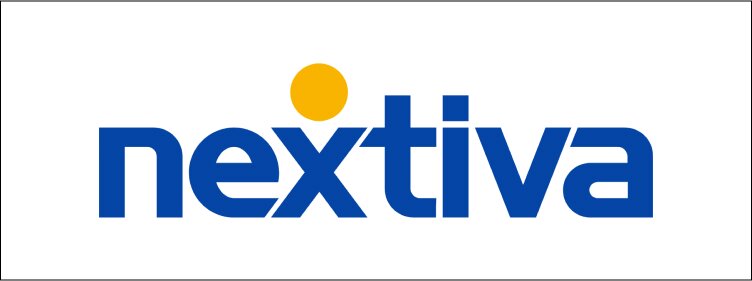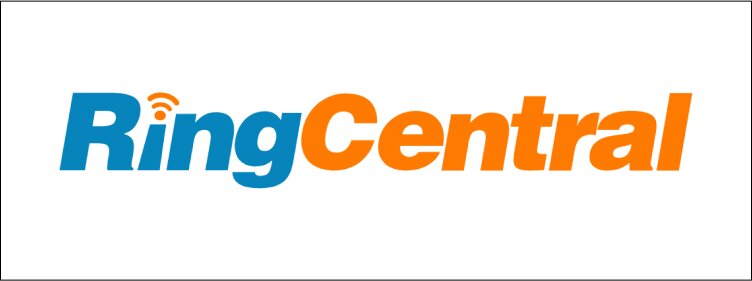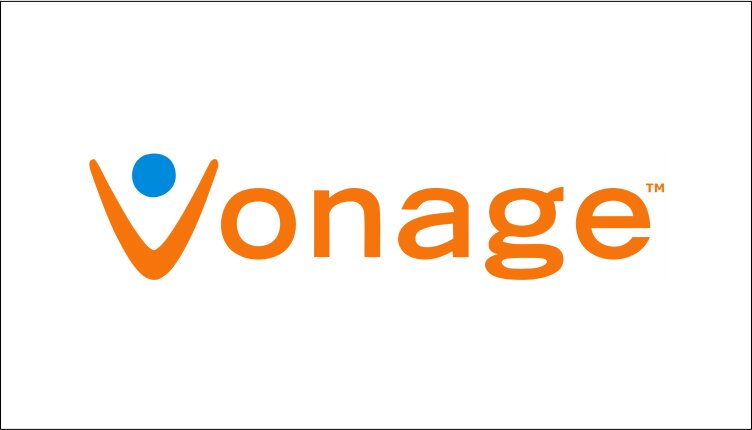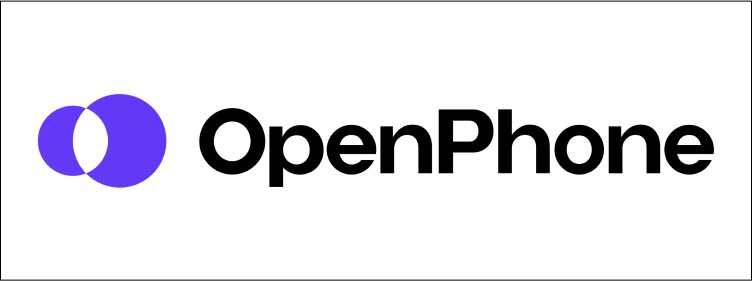
Imagine this: A potential customer is scrolling through your business website, ready to avail services, but there’s no phone number listed. A nagging thought directly creeps into the customer’s mind: is this business legitimate? That’s the moment when you realize the importance of having a dedicated or separate business phone line.
Statistics reveal that most business transactions still happen over the phone– around 8 out of 10! And guess what? Most people (also 8 out of 10!) prefer engaging in conversations over the phone rather than trading emails back and forth.
What do these stats tell us? A reliable phone line is the lifeline of your business. It lets you connect with customers directly, answer their live questions, and build trust that emails just can’t match.
Whether you’re a burgeoning startup, a mid-sized company, or an established enterprise, getting the right business phone line isn’t just an option– it’s a strategic imperative. Through this blog, my aim is not just to equip you with information but to empower you with the confidence to make an informed decision that boosts growth and efficiency in your business.
Let’s get started with business phone lines and everything that revolves around them!
What is a Business Phone Line?
By definition, a business phone line is a dedicated phone number and a system with an entire suite of features designed specifically for business communication. A dedicated business phone line ensures that your business is always reachable, creates a positive first impression, and delivers great customer service.
Different Types of Business Phone Lines
Understanding each type of phone line will help you make a smart choice about which phone line will be the best option for your business. Here are three popular business phone lines:
Analog Phone Lines

We are all familiar with conventional telephone services that use copper wire connections to transmit voice calls. Analog phone lines transmit voice signals as electrical waves and are also called POTS, or Plain Old Telephone Service.
Pros: It’s known for its reliability and familiarity, and it works even during power outages or internet disruptions.
Cons: Traditional lines may lack advanced features like call recording and video conferencing compared to digital alternatives. Also, these lines offer limited scalability for growing companies and require physical infrastructure.
Digital Phone Lines
Here, voice signals are transmitted in digital format, which provides clearer sound quality and higher data transmission speeds compared to analog phone lines.
Primarily, there are two types of digital phone lines implemented in business setups.
- ISDN (Integrated Services Digital Network)
ISDN is a type of digital phone line that supports voice, data, and fax services on a single line.
- PRI (Primary Rate Interface)
PRI is another type of digital phone line that can support multiple voice and data channels on a single line.
VoIP (Voice over Internet Protocol)

This is the modern approach that enables voice calls to be transmitted over the Internet rather than traditional phone lines.
Pros: It offers more flexibility and scalability, which is highly beneficial for growing businesses. Moreover, VoIP comes with a range of advanced features like voicemail-to-email, video conferencing, and call forwarding. It is generally more affordable than its traditional counterparts, especially for long-distance calling.
Cons: As VoIP relies on a strong internet connection, there’s a potential for call quality issues during outages.
Features of a Business Phone Line
Beyond the basic calling function, business phone lines typically come packed with a wide range of features, as mentioned below:
Features for Better Call Management
Call Routing: Distributes incoming calls to the appropriate department, employee extension, or voicemail based on pre-defined rules. This ensures customers reach the right person quickly and efficiently.
Auto Attendant/ IVR (Interactive Voice Response): Greets callers with pre-recorded messages and guides them through menu options to direct them to the desired department or extension. This saves time for both customers and staff.
Call Forwarding: Allows you to redirect incoming calls to another phone number, voicemail, or device when you’re unavailable. It ensures you never miss a call, especially when you are on the move.
Call Hold: Places an incoming call on hold with hold music or announcements, so that the caller remains engaged until an agent becomes available to take the call.
Call Transfer: Connects the caller directly to another employee or voicemail within your company. This eliminates the chance of missing important customer calls.
Features for Enhanced Communication
Voicemail: Answers the call with a professional greeting and facilitates the caller to record their voice message. These voice messages are stored in the system, that you can access at your convenience.
Voicemail-to-Email: Converts voicemail messages into text and sends them as email attachments, allowing you to quickly review the message content without listening to the entire recording.
Conference Calling: Enables you to have a conversation with multiple people at the same time. This feature is ideal for business meetings or team collaborations without bothering about the location of the participants.
Video Conferencing: Allows face-to-face communication with colleagues or clients through video calling capabilities, this feature is particularly available in VoIP systems.
Features to Support Advanced Functionality
Call Recording: Records phone conversations between agents and customers for training, quality assurance, or legal purposes (with proper consent from the callers).
Call Analytics: Provides detailed reports on call data like call volume, duration, and peak times. This helps you identify current trends and accordingly optimize their business communication strategies.
Customizable Greetings: Allows you to record personalized auto-attendant greetings for different times of day or departments. This helps in creating a polished first impression on the callers.
Integration with CRM: Integrates your phone system with your Customer Relationship Management (CRM) software. This allows for caller ID pop-ups with customer information and a streamlined communication history.
Advantages of Business Phone Lines
Project a Professional Image and Add Credibility
First impressions matter! I’m sure you agree with this. A dedicated business phone line is your chance to shine. Imagine a potential customer who searches for legal consulting services online and shortlists two firms – one with a local phone number and another with just an email address. Statistics suggest that “60% of consumers choose to call local businesses after finding them on Google.” (Source: BrightLocal, 2019). A professional phone number shows you are established, reachable, and ready to serve. This certainly instills trust in the client.
Never Miss a Business Lead
A missed call could mean a missed business opportunity. Roughly 85% of people whose calls are not answered will not call back. But what’s the real cost to your business of a missed call? IntroducerTODAY calculated that £30bn was ‘lost’ by businesses in the UK due to missed calls; that’s around £5,500 per business. A business phone line with features like call forwarding, voicemail, call queue, and hold ensures that you never miss a potential customer, even if you are on another call or away from your desk.
Streamline Communication and Boost Efficiency
According to a survey, “75% of customers believe it takes too long to reach a live agent.” A customer support center with a dedicated phone line offers features like call routing and auto attendant, ensuring prompt and efficient customer query resolution. Customers looking for service inquiries can be quickly guided by the auto attendant and directed to the sales department, ensuring they get the information they need fast.
Enhanced Customer Experience and Build Trust
It is true that there’s something powerful about connecting with a real person. A PwG survey showed that 80% of respondents would prefer to connect directly to a real, human customer service agent, rather than talk to any kind of automated chatbot or other automated call-responding service.
A business phone line allows you to provide your customers with personalized service as they connect with a live agent. Their questions are answered in real time, which certainly builds your business rapport.
Significant Cost Savings
Remember the saying by Benjamin Franklin, “Every dollar saved is a dollar earned?” This is true for businesses as well. By switching from traditional landlines to VoIP, a business can significantly reduce overhead costs. This is as good as a 50% reduction in monthly telecom costs. From lower calling rates to the elimination of costly hardware, VoIP business phone lines help businesses save a lot of money.
Top 10 Business Phone Line Providers
Nextiva

Known for its user-friendly interface, reliable service, and wide range of features, including call recording, video conferencing, and CRM integrations.
RingCentral

A cloud-based solution with a strong focus on collaboration features like team messaging and video conferencing, ideal for tech-savvy businesses.
Zoom Phone

Leverages the familiar Zoom platform for video conferencing, offering a seamless integration for businesses already using Zoom for meetings.
GoTo Connect

Offers a robust feature set at a competitive price, including international calling options and advanced analytics.
8×8

A strong choice for businesses with international operations, as they offer competitive rates and features specifically designed for global communication.
Dialpad

Focuses on AI-powered features like call transcription and sentiment analysis, which is ideal for businesses seeking advanced data insights from their calls.
Vonage

Vonage Business is a VoIP-based phone system tailored for small to mid-sized businesses. It is known for its affordable plans and focus on customization. You can avail features like virtual receptionists, mobile apps, and integrations with popular business tools.
OpenPhone

Perfect for businesses that prioritize mobile communication, offering a user-friendly mobile app and flexible phone number options.
Ooma Office

It’s a budget-friendly option for small businesses with basic needs. Omma Office features a simple VoIP solution with features like call forwarding and voicemail, as well as a mobile app for remote communication.
Grasshopper

Grasshopper is another cost-effective virtual phone system solution designed for small entrepreneurs (solopreneurs) and small teams. It provides features such as toll-free numbers, auto-attendant, call forwarding, voicemail-to-email, and call routing options.
Which Businesses Need a Telephone Business Line?
Many business owners think that having a social media presence and a website is enough, ignoring the importance of a dedicated business phone line. While every type of business can benefit from a business phone line, there are certain types of businesses where having a telephone line remains crucial for various reasons.
Let’s see whether your business type needs a dedicated telephone line!
1. Businesses That Deal Directly with Customers

Retail and E-commerce Businesses
Retail and e-commerce businesses often need to provide customers with information about products, and services and resolve their issues promptly. A direct and dedicated communication channel in the form of a phone line enables the business to offer real-time assistance to its customers.
Professional Services
From law firms to financial institutions – reachability, promptness, confidentiality, and clarity in communication are paramount to gaining the confidence of customers. A business phone line allows these professionals to assist their customers who face urgent issues, answer their questions, maintain confidentiality and professionalism, and provide effective resolution.
Service-Based Businesses
Whether you are a plumbing firm or offer electrical services, your business communication needs to offer immediate assistance to customers for their urgent issues related to plumbing or electrical services. A dedicated phone line is the best possible way for clients to reach out to your business in an emergency situation.
2. Businesses That Revolve Around Communication

Customer Support Services
Contact center agents play a pivotal role in bridging the gap between customers and businesses. They provide personalized help and resolve inquiries, serving as the frontline ambassadors of the company’s brand and reputation. The wide range of features that come along with a business phone line equips agents to handle customer inquiries and address their concerns effectively.
Marketing and Sales Teams
Marketing and sales representatives have a lot to juggle. From following up with leads to nurturing relationships, they need a convenient yet robust communication tool. Relying solely on impersonal email outreach isn’t likely to align with their dynamic role. A dedicated business phone line enables them to connect with potential and existing customers directly, answer their questions instantly, and close deals quickly.
Hospitality and Tourism
In the dynamic landscape of hospitality and tourism, customer satisfaction is of prime importance. Hotels, resorts, and tour operators need to cater to the needs of their guests, whether it is booking their accommodations, making reservations, or arranging personalized services. Having a dedicated phone line is therefore essential for such businesses.
Real Estate Businesses
It doesn’t matter if you are an established agency or an individual freelancer, real estate agents need the flexibility to stay in touch with their potential customers whenever required. Having a VoIP phone line can therefore serve the purpose of portability, as these phone lines work over any internet-connected device.
Healthcare Institutions
In the healthcare industry, reliable communication channels are required to manage patient care. Whether it is about appointment scheduling, prescription refills, test results, or emergency assistance, a business phone line ensures that patients can reach medical professionals when needed.
How to Get a Business Phone Line?
You must be convinced that a dedicated business phone line enables you to establish trust, answer live questions, and deliver exceptional customer service. So now you want a phone line for your business, but what’s the secret recipe to get the best suitable business phone line? Here’s a detailed breakdown of the process, with examples.
Determine Your Business Needs
The first step is to determine your needs and budget. Do you need a basic phone line with core features like call forwarding and voicemail, or are you looking for an advanced system with modern features like call recording and video conferencing? Before diving into the process of obtaining a business phone line, you must be clear on your needs and set a realistic budget. Considering factors like the size of your business, the nature of your industry, average call volume, etc., can help you a lot.
Choose the Right Type of Business Phone Line
Next, choose the type of phone line that best aligns with your requirements. As we have already discussed in this blog, your options may include traditional landlines, Voice over Internet Protocol (VoIP), etc. Traditional landlines are a preferred choice for those who strongly need reliability, but they come with a limited set of features. On the other hand, VoIP is a popular choice among those who want greater flexibility, scalability, and advanced features.
Select a Business Phone Service Provider
Once you have decided on the type of phone line, research and compare various service providers offering business phone line solutions. You may filter your choices based on pricing, features, reliability, customer support, and scalability. Check reviews and track records of serving businesses similar to yours.
Sign Up for a Plan and Decide on Features
Depending on the provider, you can select and sign up for a business phone line plan that suits you. You may also look for an option to customize your plan. Suppose you are a startup company. You may want to start with a basic VoIP plan and upgrade later as your business expands.
Select Your Phone Number
Now comes the most crucial step. Selecting your phone number is your chance to make that professional impression. So decide what type of phone number will be best for your business. Some popular options include local numbers, toll-free numbers, vanity numbers, etc.
A local number is best if you want to establish your business presence in a particular location. Toll-free numbers are a good choice to project the nationwide reach of your business. Vanity numbers help customers remember your brand easily.
Installation and Set Up
Next, depending on the type of phone line chosen, you may start the installation and setup of the system. Some providers offer self-installation options, while others might require a technician visit. In the case of VoIP systems, it is usually the service provider who guides you throughout the process of setting up the various features.
Test and Train Employees
Conduct thorough testing of the phone system to ensure everything is functioning correctly. Make a few inbound and outbound calls, test voicemail functionality, and use all the other features that you’ve implemented. Additionally, train your staff to get the most out of your business phone line. Many service providers offer user manuals or even live training; you can check for that as well.
Let’s Conclude!
Almost 9 out of 10 U.S. consumers say they would pay more to ensure a superior customer experience. Also, as per the Genesys Global Survey, the most requested improvement from customers was ‘better human service’. Remember that a business phone line is an investment that can pay dividends in the form of improved customer service, a boost in business sales, and overall success.




























